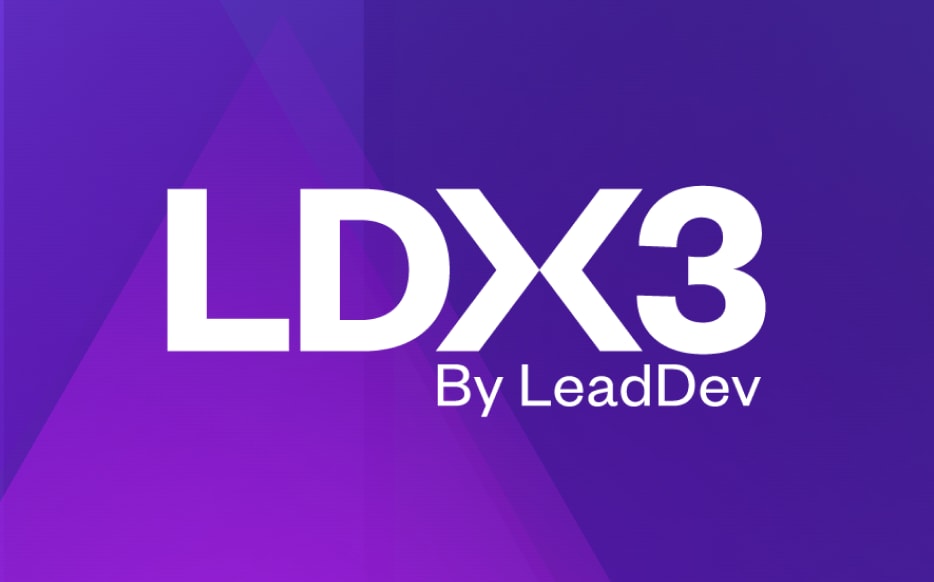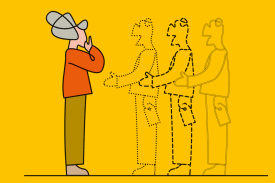You have 1 article left to read this month before you need to register a free LeadDev.com account.
Estimated reading time: 4 minutes
During LeadDev’s first ever hackathon event in Berlin, three projects rose to the top, as AI tools helped teams get to a workable MVP in less than three hours.
At LeadDev Berlin, 21 engineers were given three hours and the latest and greatest AI tools to build a minimum-viable product during LeadDev’s first AI hackathon.
“It was the first hackathon I’ve attended or hosted where all the demos worked flawlessly,” said Yenny Cheung, VP of engineering at Bluefish AI and one of the judges.

The judges and participants would go on to recognize winners in two categories – Innovation Champion for the most groundbreaking solution, and Customer’s Choice for the most-loved product. Here’s who won.
Your inbox, upgraded.
Receive weekly engineering insights to level up your leadership approach.
Innovation Champion: SPARKR
The Innovation Champion, voted by the judges, was SPARKR. This connects people with conference speakers who share similar interests and goals.
It was built by Stanislav Muller, solutions architect at Omnevo, Lauris Jullien, staff AI engineer at Thoughtworks, and Jacek Jaworski, senior manager of engineering at Allegro.
Commenting on how it felt to bring their idea to life, Muller and Jullien were “blown away”, and “still a bit in disbelief” to what the team achieved in less than three hours, with real data and complete navigation flows.
“We didn’t just build a demo – SPARKR was actually a working product with real speaker data, matching algorithms, and AI-generated conversation starters. That kind of result in that timeframe still surprises me.”
He credits their win to not rushing into coding – taking time to plan the architecture, validate the design, and divide the work clearly so they could build quickly without losing alignment.

Jaworski added: “Our success came down to a good mix: using AI as the core tech, having a decently-thought-out architecture, and aiming all of it at solving a real, human challenge”
“Their solution was impressive. In a short time, they managed to bring about multiple features which involved speaker matches powered by search, conversation starters, key topics to discuss, knowledge graph and even a network graph,” said Yenny Cheung. “To do so, they’d need to scrape the conference go-er’s LinkedIn, speakers’ socials and the conference page. They also put a lot of effort into using many different tools like Augment Code, v0 by Vercel, Figma Make, Perplexity API, Claude Code, and OpenAI tools.”
More like this
Customer’s Choice award: AI Council and Reelify
In the Customer’s Choice category for the most-loved product, two teams were crowned winners. This category was voted for by the participants.
AI council, a multi-purpose AI group chat that simulates teammates or friends to improve collaboration. This is done by highlighting friends and teammates that have similar interests in order to chat with each other. The engineers were Shady Sharaf, principal software engineer at The Times and Ariston Lim, engineering manager at Trivago.
“Winning the community vote felt like validation not just for the project, but for all those months of experimenting, for believing that AI could genuinely enhance how engineering teams collaborate and make decisions together,” Sharaf told LeadDev during the event.
Lim added that the idea was sparked by James Stanier’s talk earlier in the week, which prompted him to team up with Sharaf to bring the AI Council project to life.
The second team to win was Reelify, which transforms long videos into highlight style reels with AI captions and analysis. The members were Chidozie Nwoga, engineering manager at MediaMarktSaturn, and Hrishikesh Yadav, developer advocate at TwelveLabs.
“The collaboration was first class, thinking about the product with my partner from back to front helped us narrow our focus and then we split up the work and used V0 and Augment Code to its fullest potential,” Nwoga said.
Why hackathons?
The AI landscape is moving faster than ever – but for engineering leaders, finding the time to explore new tools and experiment with what’s next can be a challenge.
“I knew it was going to be a great opportunity to build something new and innovative alongside some of the most prominent tech leads in the industry and have a lot of fun doing it! I honestly didn’t know what I was going to build, but I knew it’d be fun,” Sharaf added.

London • June 2 & 3, 2026
Rands, Nicole Forsgren & Matej Pfajfar confirmed
Jaworski explained that “while most hackathons have a strict theme, the freedom to tackle any problem allowed for a huge variety of creative and impressive demos.”
He added that the Hackathon showed how AI tools can accelerate rapid prototyping – allowing teams to play with ideas, validate them, and pivot in hours rather than weeks.
“For years, engineering hackathons picked up a bad name. They were co-opted by organizations who treated them as a way to get engineers building business-people’s ideas for free. The joy went out of it and people stopped showing up,” said LeadDev cofounder Dave Fletcher.
“AI has shifted that dynamic to make Hackathons fun and creative again, and they have snapped back into focus. New AI tools let a group of strangers come together and build something, pushing it far further and faster than before.”




